How I Picked a Dog Breeder
by Jay
If you get on our Facebook page, you may have seen that I recently (finally) picked a breeder for a Lab – which is also the first dog I’ll have with kids in the house, and my first real hunting dog.
As you know if you’ve ever been through this process, finding a breeder is a pain in the rear…or at least I felt it was. Here’s why:
1. It takes a lot of time. Not only do you have to squeeze yet another thing into your day, you can’t snap your fingers and get a dog (a good thing, but…).
2. It’s nerve-wracking because you’re not buying an inanimate object. In other words, I’ve spent a lot more on a shotgun than this dog will cost (up front, anyway!), and didn’t sweat it half as much as this decision.
3. Breeders reading this might take offense at this, though none meant: I really felt like most everyone was telling me the same thing, which basically was what I wanted to hear: hunts like a lion but a lamb in the home, sheds but not too much, good stock, good health certs, etc. That was true regardless of breed.
4. Dogs are expensive!
5. After all the due diligence, the breeder recommendations, etc., ultimately you’re crossing your fingers and hoping the pup works out as planned. Or at least that’s way I – a guy without any training experience and not a whole lot of time – feel….
So how did I end up at Whistling Wings Kennel? Here’s the process, in chronological order.
1. After exploring every option under the sun, I decided that a Lab best fits my family situation at this time. That includes my hunting situation, which is mostly for ruffies. I’d love to get a Setter at some point and I’m sure will, but my overwhelming need in the grouse woods is a close-working dog that retrieves, first and foremost.
2. A recommendation, in this case from someone on our Facebook page.
3. Finding out that owner Jeremy Criscoe had a couple litters planned that would produce dogs he felt would fit my family’s criteria.
4. Conversations with Jeremy.
5. More convos with Jeremy.
6. Checked his references.
7. More convos with Jeremy.
Yes I’d been looking into/talking with other breeders, litters, etc., but for whatever reason(s) they weren’t working out. Couple issues I’d like to mention, no names though:
> I enquired with one fairly well-known breeder and got what amounted to a form letter (email) back. Nothing wrong with that, I guess, but sure didn’t give me the warm fuzzies. Not how I feel a dog purchase should go.
> Some breeders never returned emails or phone calls! As a long-time small biz owner, I know this is the #2 reason small businesses fail: They’re not operated as a business. (The #1 reason is that too many people have an overly romantic view of owning their own business, and many of these folks end up opening restaurants….)
So…
The bottom line here is that the Kumars have a Lab on the way – or at least in the oven – and we couldn’t be more psyched.
Since the “finding” process is over, what I’m trying to squeeze into my day now is reading training books. I’m finding it like taking shooting or golf lessons: Everyone’s got their own way of doing it. So if anyone has a recommendation for resources for Lab training, please shoot ’em over!
Category: Labs, Whistling Wings Kennel

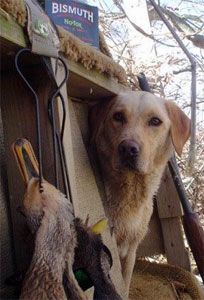




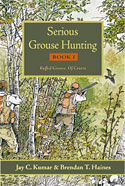

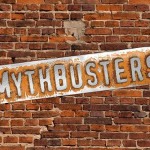
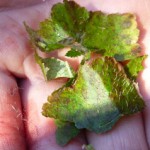
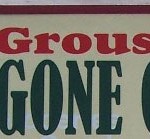
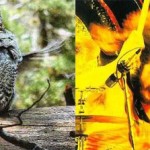
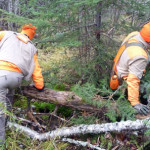
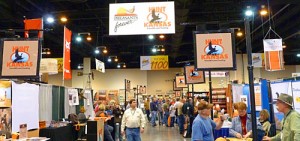
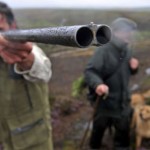
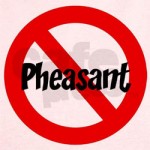
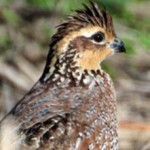
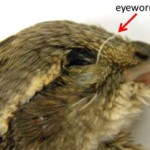

Jay,
With a Lab, don’t worry about field training til the pup is at least a year. These buggers are hyper as all hell and serious ADD. Regular and consistent obedience training is critical if field training is going to progress well later on. Extensive exercise is also a must if you don’t want your Lab to destroy your house. Once you do get them there, though, you will find you have a breed that is as proficient in the pheasant fields as in the duck blind and is eager to please. Be patient and have fun!
No field training for a year? Other than that, not letting my wife read this (lol). -Jay
I completely disagree with no field training for a year. I got my Lab from Wildrose & she came home with me at 9 months of age. She stayed there & went home with her trainer every night. Best decision I ever made. At 9 months she was completely trained to the whistle. Sit, not stay, sit means stay, to whistle, stop, cast left, right, etc. Jeremy was at Wildrose at that time.
Start training immediately.
I know what you mean. I’ve been researching since last summer. Put a deposit on a pup today. Will be pleased to get her in three weeks. Spoke to four different breeders and visited two. Exchanged lots of emails. In the end, you go with the one that “feels” right. Three books on training so far. We’ll see how that goes. May take her to a pro if need be.
There is a wealth of information on the Wildrose kennel web site, uklabs.com. Click on training articles & start with the puppy section. You can also watch Wildrose training videos on utube.
Doug,
What I meant was with retrievers, mastering the basic obedience such “sit” “stay” and “wait” as well as off-leash heeling are crucial fundamentals to a steady, finished dog.
I’ve sat many mornings in duck blinds near many ill’informed owners who have not followed through on this and spend most of there time blowing their whistle, yelling at the dog and scaring away all birds in the county.
In your case, you had the means to send your dog to a pro on a daily basis, which is excellent. Most of my clients aren’t in that position and are coming to me for assistance. For many of them, its their first hunting dog, or possibly first dog period. They need that first six months just to learn to establish their leadership, work on obedience training and burn the dog’s energy before you complicate things with serious field work.
Also, while a good Lab can certainly learn retrieves very quickly, I haven’t seen many that are sitting clam in a blind during their first season.
You also mentioned that you got your Lab at 9 months. I’m referring to someone who is getting an 8-10 week old pup.
A few years ago I may have agreed with you but now I think you are not giving the dog much credit. Leadership should be established in a matter of days. Same with obedience, then it’s just a matter of being consistent. Burn the dogs energy? I don’t get that at all. If your Lab is not steady in the blind the first year you need a new trainer or training methods.
A lot of dogs are ruined in the first 6 months by misguided trainers & methods.
Check out Robert Milner’s website. He has trained a few thousand dogs and has been training for 40 years. He owned Wildrose for 23 years and now owns Duckhill kennels. The guy that owns Wildrose has only been training for 12 years. Milner is the best of the best.
I hunt grouse pretty much exclusively. I have just purchased a pointing lab pup. I have hunted with pointers and pointing labs and springers and GSP’s. Pointers often hunt too big-you spend too much time sprinting to the point. The pointers often/usually are not good retrievers at all. Great feeling shooting a grouse off the point you can’t find. I think you get the best of both worlds with the pointing lab. Works close. Retrieves anything. Try to get a pointer to force fetch. Not happening. Maybe a pointing lab doesn”t point as well as a EP or ES, but it does give you plenty of warning and after a while the lab can pin a bird with the best of them.
Don’t field train for a year. You’re kidding right?
By a year a good dog is doing almost everything. Room for improvement, sure, but pointing, retrieving, casting, staying close, etc. If the dog is hyper either bad breeding or a reflection of the owner. No offense meant. Dogs are a combination of genes and what the owner brings out in them. Dogs are a reflection of ourselves. They don’t do anything we have not permitted them to do. Labs are about the most trainable and responsive breed out there.
Just my 2 cents.
I have a pointing lab as well, and it sort of boggled my mind that this gentleman picked a normal lab as his grouse hunting pal. My PL locks up and holds point just as good, and often better than the hardest pointing breeds, and I’ve seen plenty others do the same. There are solid PL breeders across the nation. I ran mine in a casual field trial this past summer in the pointing dog division, which he was the only lab (and was only 18 months old), and took 11th place out of 28 pointing dogs, many of which were mature field trial dogs…. I must add though, that I disagree with your suggestion that pointing breeds cannot be force fetched. It can often be more difficult, but nearly any seasoned trainer can FF a pointing breed, I’ve seen dozens of them retrieve like machines, albeit, not as enthusiastically as our retrievers. EPs and setters may be difficult, but GWPs, GSPs, Britts, PPs, WPGs, etc, are well known for versatility including retrieving.
To the gent above suggesting no field training until 1+ year, that is insane. Birdwork is first based on instinct, and it’s wise to bring that out ASAP. I’d start birdwork at 16 weeks–clipped wings, upland bumps in light cover, tons of finds, etc, the more the better. Control/retriever work, sure might have to wait until 7 or 8 months, after many foundations are laid.
We got a pup that was about 8 weeks old and waiting until she was 6 months to start obedience training. She did great with obedience and is now about 8 months. We’re having a trainer work with her for field training now and hopefully will be good to go soon.